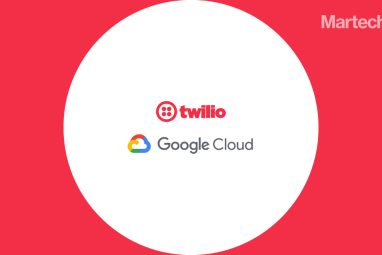IBM Software is Now Cloud-Native, to Run on Any Cloud with Red Hat
IBM announced that it had transformed its software portfolio to be cloud-native and optimised it to run on Red Hat OpenShift. Enterprises can now build mission-critical applications once and run them on all leading public clouds, including AWS, Microsoft Azure, Google Cloud Platform, Alibaba and IBM Cloud and private clouds. The new cloud-native capabilities will […]
IBM announced that it had transformed its software portfolio to be cloud-native and optimised it to run on Red Hat OpenShift.
Enterprises can now build mission-critical applications once and run them on all leading public clouds, including AWS, Microsoft Azure, Google Cloud Platform, Alibaba and IBM Cloud and private clouds.
The new cloud-native capabilities will be delivered as pre-integrated solutions called IBM Cloud Paks. The IBM-certified and containerised software will provide a common operating model, and a common set of services – including identity management, security, monitoring and logging – and are designed to improve visibility and control across clouds together with a unified and intuitive dashboard.
IBM also announced:
- Red Hat OpenShift on IBM Cloud: A flexible, fully-managed service of OpenShift on IBM’s public cloud – deployable in one-click with automated resiliency, data compliance, and security – to help enterprises modernise and migrate to a hybrid cloud infrastructure.
- Red Hat OpenShift on IBM Z and LinuxONE: IBM will bring Red Hat OpenShift to their enterprise systems, IBM Z and LinuxONE, which collectively power more than 30 billion transactions a day globally. IBM already supports OpenShift on its Power Systems and Storage.
- Consulting and technology services for Red Hat: New IBM services delivered by one of the world’s largest teams of Red Hat certified-consultants and more than 80,000 cloud application services practitioners to help clients advise, move, build, and manage their workloads to cloud environments.
Also Read: IBM Study Finds That the Middle East Has the Highest Number of Data Breach Records
The software and services, which include more than 100 products from across IBM’s expansive software portfolio optimised to run on Red Hat OpenShift, will be delivered on IBM’s hybrid multi-cloud platform. It is built on open source technologies, including Red Hat OpenShift, a comprehensive enterprise Kubernetes platform, and Red Hat Enterprise Linux, an enterprise Linux platform. As a result, clients can select the architecture and approach to address the most critical application, data and workload requirements for their business.
“IBM is unleashing its software from the data centre to fuel the enterprise workload race to the cloud. This will further position IBM the industry leader in the more than USD 1 trillion hybrid-cloud opportunity,” said Arvind Krishna, senior vice president, Cloud and Cognitive Software, IBM, adding, “We are providing the essential tools enterprises need to make their multi-year journey to cloud on common, open standards that can reach across clouds, across applications and vendors with Red Hat.”
“Red Hat is unlocking innovation with Linux-based technologies, including containers and Kubernetes, which have become the fundamental building blocks of hybrid cloud environments,” said Jim Whitehurst, president and CEO, Red Hat, adding, “This open hybrid cloud foundation is what enables the vision of any app, anywhere, anytime. Combined with IBM’s strong industry expertise and supported by a vast ecosystem of passionate developers and partners, customers can create modern apps with the technologies of their choice and the flexibility to deploy in the best environment for the app — whether that is on-premises or across multiple public clouds.”
Transforming IBM software to support mission-critical apps anywhere
The Cloud Paks provide full software support and help protect the entire stack — from hardware to applications – to help clients rapidly migrate, integrate and modernise mission-critical applications on any cloud. They are easily deployed, delivered as packages tailored for specific client use cases, and adding a consumption-based pricing model.
The first five IBM Cloud Paks are now available and include:
- Cloud Pak for Data to simplify and automate how organisations deliver insights from their data and provide an open and extensible architecture to virtualise data for AI up to 430 per cent faster.
- Cloud Pak for Applications to help businesses modernise, build, deploy and run applications. It helped IBM customers in the fintech sector reduce development time by 84 per cent.
- Cloud Pak for Integration to help integrate apps, data, cloud services and APIs. It is designed to eliminate 33 per cent of integration costs.
- Cloud Pak for Automation to help transform business processes, decisions and content. A banking client was able to reduce manual processes by 80 per cent.
- Cloud Pak for Multicloud Management to provide multi-cloud visibility, governance and automation. It was able to help clients reduce operational expenses of supporting large-scale cloud-native environments by 75 per cent.
Across industries, businesses can leverage IBM’s hybrid multi-cloud platform and Red Hat OpenShift-enabled IBM software to help transform their organisations from the inside out to increase their competitive advantage.
Sprint turned to the IBM Cloud Pak for Data to help it better understand and prepare for upcoming network technologies, like 5G. “We tapped into the IBM Cloud Pak for Data to take advantage of Watson Studio and Machine Learning,” said Michele Gehl, vice president, OSS Applications & Operations, at Sprint, adding, “With this container-based platform, we’re able to build models quickly to generate insights about client-facing issues from diverse datasets and respond accordingly.” Gehl said the new Cloud Pak for Data System appears to be a great way to add AI into an existing infrastructure quickly.
Also Read: Hybrid Cloud Offers Better Data Opportunities for Marketers
Societe Generale implemented a multi-cloud strategy to drive innovation and deliver new experiences for its customers. “As one of the leading European financial services Groups, Societe Generale continually strives to launch new offerings with speed and agility. Core to that focus is a multi-cloud strategy that provides capacity for the innovation we need to keep our technical capabilities and business priorities closely aligned,” said Carlos Gonçalves, Global CIO, Societe Generale. “Red Hat has played a key role in helping us leverage the power of operating seamlessly across multiple clouds, and we look forward to broadening our strong collaboration with both IBM and Red Hat teams.”
Associated Bank is adopting IBM Cloud Pak for Data System, rapid deployment and scaling of AI. Initial projects the bank is planning to work on include a new Customer 360 system for improving client experiences and a new governed data dashboard for improved analytics results. “One of the great things about the Cloud Pak for Data System is the speed with which we’ll be able to launch and scale our analytics platform,” said Steve Lueck, Vice President, Data Management, at Associated Bank, which is in the process of deploying several new systems. “The integrated stack contains what we need to improve data quality, catalogue our data assets, enable data collaboration, and build/operationalise data sciences. We’re able to move quickly with design, test, build and deployment of new models and analytical applications.”
Primerica collaborated with IBM to optimise the client experience and modernise its mission-critical workloads. “As a leading financial services provider to middle-income families throughout North America, Primerica has been on a journey to modernise our applications and rapidly deliver new services with the innovations our clients expect,” said Barry Pellas, CTO and EVP, Primerica. “The IBM platform is a key enabler for our hybrid cloud strategy, allowing us to mix public and private clouds to deliver exceptional experiences quickly while keeping our data secure.”
Also Read: Microsoft and Oracle Combine Forces to Offer Multi-cloud Services
Ilmarinen, an insurance company based in Finland, is using multiple IBM Cloud Paks to modernise its business and optimise the use of data. “The ability to run enterprise-grade, containerised solutions, is a key part of our application modernisation strategy,” said Jani Itkonen, chief technical architect, Ilmarinen Mutual Pension Insurance Company. “It allows us to change and scale as needed and keeps us positioned to always deliver new capabilities in a faster, more secure way.”
Fiducia & GAD IT AG, an IT service provider for the banking industry, implemented RedHat OpenShift to transform its customer experience. “Fiducia & GAD IT AG is using Red Hat OpenShift as a base container platform to enhance the customer experience and transform parts of their core banking environment to become more agile and customer-centric,” said Birgit Frohnhoff, CIO, Fiducia & GAD IT AG. “We’re excited to learn more about the potential of IBM’s Cloud Pak for Data to enhance our analytical, big data and machine learning capabilities.”





